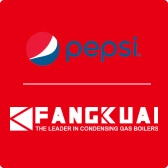Natural Gas Steam Boiler Cost Analysis: Comprehensive Breakdown
date: 2024-09-07
Page preview:
Introduction
Are you curious about the cost analysis of natural gas steam boilers? In this blog post, we will delve into the intricacies of analyzing the expenses involved in owning and operating a natural gas steam boiler. From equipment purchase costs to maintenance expenses, we will break down each aspect to provide you with a comprehensive understanding. Whether you're considering investing in a natural gas steam boiler or simply want to learn more about its financial implications, this blog post will give you valuable insights. Let's explore the world of natural gas steam boiler cost analysis together.
Natural Gas Steam Boiler Product Analysis
Appearance
The appearance of natural gas steam boilers varies depending on the brand, model and purpose, but generally speaking, they all have some common features.
The overall shape is usually a cuboid or cylinder to adapt to different installation environments and space requirements;
The outer shell is generally made of metal, such as steel plate or stainless steel, with good corrosion resistance and high temperature resistance to ensure the long-term stable operation of the boiler;
The fuel interface is usually located on the side or top of the boiler to connect the natural gas pipeline to ensure a stable supply of fuel.
Safety accessories such as water level gauges and pressure gauges are usually installed in a conspicuous position of the boiler to facilitate operators to observe the operating status of the boiler at any time to ensure the safe operation of the boiler.
Types of Natural Gas Steam Boilers
The steam production of boilers of different models and specifications will be different.
Gas(Oil) Fired Water Tube Steam Boiler:

Fangkuai water tube steam boiler series uniquely adopts a double-cylinder vertical "D" type layout design. The principle of operation is that water, steam or a mixture of steam and water flows inside the tube, while flame and smoke burn and flow outside the tube. It is particularly worth noting that the inside of the boiler adopts a curved water tube structure. This design makes the cross-section inside the tube smaller than outside the tube, so the flow rate of steam and water in the tube is significantly increased. This feature ensures that the steam generated on the heating surface can be quickly washed away, greatly increasing the heat absorption of the pot water. In addition, this series of boilers not only has extremely fast steam flow rate, but is also equipped with an excellent water circulation system, which greatly improves the evaporation efficiency. What's even more outstanding is that it shows a strong ability to adapt to load changes, and is especially suitable for operating in high-pressure environments. To sum up, the Fangkuai water tube steam boiler series has excellent heat absorption and thermal efficiency, providing users with an excellent performance experience.
New integrated condensing steam boiler:

Fangkuai's new integrated condensing steam boiler relies on its independently developed FGR technology to demonstrate excellent environmental performance in actual measurements. NOX emissions are lower than 27mg/m3, fully complying with the first-class city emission standards. This boiler has become the product of choice for many heating units, not only because of its high thermal efficiency, but also because of its intelligent operating characteristics, which saves users a lot of money. At the same time, the boiler is also equipped with early warning devices such as scale detection and smoke temperature detection to ensure the safety and stability of the boiler operation.
Condensing Steam Boiler:

Euromonitor series boilers use coupling technology to combine the traditional combustion system and heat transfer system into a complete thermal energy system, solving the dilemma of sacrificing the heat transfer characteristics of the boiler to adapt to the combustion characteristics of the burner, achieving low nitrogen emissions and low nitrogen emissions. High efficiency while further improving. Scope of application: packaging industry, pharmaceutical industry, chemical industry, liquid beverages, heating companies, biological fermentation engineering, etc.
Cost Analysis of Natural Gas Steam Boilers
High Efficiency
One of the key advantages of natural gas steam boilers is their high efficiency. These boilers can achieve an Annual Fuel Utilization Efficiency (AFUE) of 90% or higher. AFUE is a measure of how efficiently a boiler can convert the energy in its fuel to useful heat. With an AFUE of 90%, natural gas steam boilers can convert 90% of the energy in natural gas into heat. This high efficiency results in lower fuel consumption and reduced operating costs, making natural gas steam boilers a cost-effective choice for heating and industrial processes.
Condensing Technology
Natural gas steam boilers often utilize condensing technology to further enhance their efficiency. Condensing boilers recover energy from the exhaust gases by condensing water vapor present in the flue gas. This allows them to extract additional heat from the combustion process, improving the overall efficiency of the boiler. By capturing and utilizing this waste heat, condensing technology significantly increases the energy efficiency of natural gas steam boilers, leading to lower energy bills and reduced environmental impact.
Modulating Burners
Another feature commonly found in natural gas steam boilers is modulating burners. Modulating burners allow the boiler to adjust the flame intensity based on the heating demand. By modulating the flame, the boiler can operate more efficiently and precisely match the required heat output. This results in improved fuel efficiency and reduced energy wastage. The ability to modulate the burner output ensures that the boiler operates at optimal efficiency levels, providing consistent and reliable heat for various applications.
Advanced Heat Exchangers
Natural gas steam boilers also feature advanced heat exchangers that maximize heat transfer while minimizing heat loss. Heat exchangers are responsible for transferring the heat generated from burning natural gas to the water to produce steam. By utilizing advanced heat exchanger designs, these boilers can optimize heat transfer, ensuring that a maximum amount of heat is transferred to the water, resulting in improved efficiency. The advanced heat exchangers in natural gas steam boilers help to maintain stable and efficient operation, contributing to their overall performance and longevity.
High Efficiency
When it comes to high efficiency, natural gas steam boilers are at the forefront of energy-saving technology. Here are some key factors that contribute to their exceptional efficiency:
-
Annual Fuel Utilization Efficiency (AFUE): Natural gas steam boilers boast an impressive AFUE rating of 90% or higher, showcasing their ability to convert energy from natural gas into heat with minimal waste.
-
Condensing Technology: By utilizing condensing technology, these boilers recover additional heat from exhaust gases, maximizing energy extraction and efficiency.
-
Modulating Burners: Equipped with modulating burners, natural gas steam boilers can adjust their flame intensity based on heating demand, ensuring precise heat output and minimal energy wastage.
With a focus on optimizing heat transfer and minimizing energy loss, natural gas steam boilers stand out for their commitment to efficiency. The advanced heat exchangers and sealed combustion systems further enhance their performance, making them a top choice for environmentally-conscious industries seeking reliable and energy-efficient heating solutions.
Condensing Technology
Condensing technology is a key feature of natural gas steam boilers that enhances their efficiency by recovering energy from exhaust gases. This innovative technology works by condensing water vapor present in the flue gas, allowing the boiler to extract additional heat from the combustion process. By maximizing heat recovery, condensing boilers can significantly improve their overall efficiency, making them a sustainable and energy-efficient heating solution.
Benefits of Condensing Technology
-
Improved Efficiency: Condensing technology allows natural gas steam boilers to achieve higher efficiency levels by capturing and utilizing additional heat from the exhaust gases.
-
Energy Savings: By recovering energy that would otherwise be wasted, condensing boilers can reduce fuel consumption, leading to cost savings and environmental benefits.
-
Reduced Emissions: The increased efficiency of condensing technology results in lower carbon emissions, contributing to a cleaner and greener environment.
-
Enhanced Performance: Condensing boilers equipped with this technology provide consistent and reliable heating, ensuring optimal comfort and operational performance.
Embracing condensing technology in natural gas steam boilers not only enhances their performance but also aligns with the global shift towards sustainable energy solutions. By implementing this innovative technology, industries and institutions can reduce their carbon footprint, lower energy costs, and contribute to a cleaner future. Experience the benefits of condensing technology and unlock the full potential of natural gas steam boilers in your heating systems.
Modulating Burners
Modulating burners are a key feature found in natural gas steam boilers, enhancing their efficiency and performance. These burners allow the boiler to adjust the flame intensity based on the heating demand, resulting in optimized fuel consumption. By modulating the flame, the boiler can operate more efficiently, ensuring that the heat output matches the required level precisely. This dynamic control over the combustion process not only improves fuel efficiency but also reduces energy wastage, making natural gas steam boilers a cost-effective and eco-friendly heating solution.
The ability of modulating burners to adjust the flame intensity in real-time sets natural gas steam boilers apart from traditional boiler systems. This responsive feature enables the boiler to adapt quickly to changes in heating demand, maintaining a consistent and comfortable indoor environment. Whether the demand for steam increases or decreases, the modulating burners can regulate the heat output accordingly, ensuring optimal energy utilization and minimizing operational costs. This flexibility in heat production makes natural gas steam boilers versatile and efficient for various applications.
Incorporating modulating burners in natural gas steam boilers not only enhances their operational efficiency but also contributes to overall energy savings. By dynamically adjusting the flame intensity, the boiler can prevent energy wastage during periods of low heating demand, optimizing fuel consumption. This intelligent control mechanism not only reduces fuel costs but also minimizes environmental impact by lowering carbon emissions. Modulating burners play a crucial role in maximizing the performance and sustainability of natural gas steam boilers, making them a preferred choice for energy-efficient heating solutions.
The advanced technology of modulating burners in natural gas steam boilers aligns with the growing demand for energy-efficient and environmentally friendly heating systems. These burners exemplify the innovation and adaptability of modern boiler technology, offering a sustainable heating solution for various industrial and commercial applications. As the industry continues to prioritize energy efficiency and carbon footprint reduction, natural gas steam boilers equipped with modulating burners stand out as a reliable and eco-conscious choice for meeting heating requirements while minimizing environmental impact.
Advanced Heat Exchangers
Enhancing Heat Transfer Efficiency
Advanced heat exchangers play a crucial role in maximizing the efficiency of natural gas steam boilers. By optimizing the heat transfer process, these heat exchangers ensure that the maximum amount of heat energy generated from burning natural gas is transferred to the water. This increased heat transfer efficiency results in higher steam production rates and improved overall boiler performance. With innovative heat exchanger designs, natural gas steam boilers can achieve remarkable levels of energy efficiency.
Innovative Design Features
The design of advanced heat exchangers in natural gas steam boilers incorporates innovative features to enhance heat transfer efficiency. These features may include extended surface areas, special materials with high thermal conductivity, and optimized flow patterns. By utilizing these design elements, heat exchangers can effectively capture and transfer heat energy, resulting in improved steam generation and reduced energy wastage. The innovative design of heat exchangers contributes to the overall performance and reliability of natural gas steam boilers.
Minimizing Heat Loss
In addition to maximizing heat transfer efficiency, advanced heat exchangers in natural gas steam boilers are designed to minimize heat loss during the transfer process. By reducing heat loss, these heat exchangers ensure that the energy generated from burning natural gas is efficiently utilized to heat the water and produce steam. This focus on minimizing heat loss contributes to the high efficiency and energy-saving capabilities of natural gas steam boilers, making them a sustainable and environmentally friendly heating solution.
Temperature Control and Regulation
Advanced heat exchangers in natural gas steam boilers also play a key role in temperature control and regulation. By effectively managing the transfer of heat energy, these heat exchangers help maintain the desired steam temperature within the boiler system. This precise temperature control ensures optimal performance of the boiler, prevents overheating or underheating of the water, and contributes to the overall efficiency and reliability of the steam generation process. The advanced temperature control features of heat exchangers enhance the operational efficiency of natural gas steam boilers.
Conclusion
In conclusion, advanced heat exchangers are essential components of natural gas steam boilers, contributing to their high efficiency, reliability, and energy-saving capabilities. By enhancing heat transfer efficiency, incorporating innovative design features, minimizing heat loss, and providing precise temperature control, these heat exchangers optimize the steam generation process and ensure the sustainable operation of natural gas steam boilers. The continuous development and integration of advanced heat exchanger technologies further enhance the performance and environmental sustainability of natural gas steam boilers, making them a preferred choice for clean and efficient energy solutions.
Sealed Combustion Systems
Sealed combustion systems are a key feature of natural gas steam boilers, ensuring efficiency and safety in operation. These systems draw air from outside for combustion, reducing energy loss and improving overall performance. Let's delve deeper into the benefits of sealed combustion systems:
-
Energy Efficiency: By utilizing outside air for combustion, sealed combustion systems prevent the boiler from drawing heated indoor air, leading to energy savings and improved efficiency.
-
Safety Measures: Sealed combustion systems enhance safety by eliminating the risk of backdrafting, where combustion gases flow back into the living space. This ensures a secure operating environment for the boiler.
-
Environmental Impact: With sealed combustion systems, natural gas steam boilers produce lower emissions, contributing to a cleaner and healthier environment. The sealed design helps reduce air pollution and carbon footprint.
In conclusion, sealed combustion systems play a vital role in the performance and sustainability of natural gas steam boilers. By drawing in outside air for combustion, these systems enhance efficiency, safety, and environmental friendliness. With their innovative design and focus on energy conservation, sealed combustion systems are a key component in the success of modern steam boiler technology. Explore the benefits of sealed combustion systems and experience the seamless operation of natural gas steam boilers in your industry or institution.
How Natural Gas Steam Boilers Work
Natural gas steam boilers operate by harnessing the energy from burning natural gas to heat water. The combustion process generates high-temperature flue gas, which transfers its heat energy to the water within the boiler. As the water absorbs this heat, it gradually increases in temperature until it reaches the boiling point, transforming into steam. This steam is then directed through pipes to various applications, where it can be utilized for heating, power generation, or industrial processes.
Water treatment is a crucial component of natural gas steam boiler operation. Proper water treatment is essential to prevent issues such as scale formation, corrosion, and fouling within the boiler system. These problems can detrimentally affect the efficiency and longevity of the boiler. Water treatment methods include water softening, chemical treatments, and routine monitoring of water quality to ensure optimal performance and reliability of the boiler system.
The operation of natural gas steam boilers relies on a closed-loop system where water is continually circulated and heated to produce steam. Within the boiler, heat exchangers facilitate the transfer of heat from the combustion process to the water, ensuring efficient steam generation. The heat exchangers play a critical role in maximizing heat transfer efficiency while minimizing energy loss, contributing to the overall effectiveness of the boiler system.
Steam produced by natural gas boilers is versatile and can be utilized in various industrial applications, including heating, power generation, and process heating. The pressurized steam can be distributed through pipelines to where it is needed, providing a reliable and efficient source of energy for diverse operations. The flexibility and adaptability of steam make it a preferred choice for many industries seeking cost-effective and sustainable energy solutions.
In conclusion, the operation of natural gas steam boilers involves the combustion of natural gas to heat water, generating steam that can be utilized for a range of industrial applications. Effective water treatment, advanced heat exchangers, and a sealed combustion system are key components that ensure the efficiency and reliability of these boilers. By understanding how natural gas steam boilers work, industries can harness the benefits of clean and efficient energy solutions to meet their operational needs effectively.
Applications of Natural Gas Steam Boilers
Natural gas steam boilers find widespread applications across various industries and institutions. In industrial production, these boilers play a crucial role in processes such as heating, drying, disinfection, and evaporation. Industries like chemical, textile, paper, and food processing rely on the efficient heat transfer capabilities of natural gas steam boilers to meet their production needs. The versatility and reliability of these boilers make them indispensable in enhancing productivity and ensuring consistent quality in industrial settings.
Beyond industrial applications, natural gas steam boilers are also extensively used in commercial services. Hotels, hospitals, schools, and other establishments rely on these boilers for heating, hot water supply, and sterilization processes. The consistent and reliable steam production of natural gas boilers ensures a comfortable and hygienic environment for occupants. The ability to regulate steam output and temperature based on specific requirements makes these boilers ideal for meeting the diverse needs of commercial facilities while maintaining energy efficiency.
In some urban areas, natural gas steam boilers serve as the primary heat source for centralized heating systems. These systems provide winter heating services to residential areas, ensuring warmth and comfort during colder months. The use of natural gas as a clean energy source in centralized heating systems not only enhances energy efficiency but also reduces environmental impact, contributing to sustainable urban development and improved air quality.
Moreover, while natural gas steam boilers are not directly used for electricity generation, the steam they produce can power turbines that drive generators, forming an integral part of combined heat and power (CHP) systems. By efficiently utilizing the steam generated from natural gas combustion, these boilers contribute to the efficient production of electricity while meeting thermal energy needs. The integration of natural gas steam boilers in CHP systems enhances overall energy efficiency and supports the transition towards more sustainable energy practices.
Future Development Trends
As we look to the future, the development of natural gas steam boilers continues to evolve. Advancements in technology, such as the integration of smart controls and sensors, will further enhance efficiency and performance. Additionally, the focus on reducing carbon emissions will drive the design of even cleaner and more sustainable natural gas steam boilers.
In conclusion, natural gas steam boilers offer a reliable, efficient, and environmentally friendly solution for various industries. With their high efficiency, condensing technology, modulating burners, and advanced heat exchangers, these boilers are becoming increasingly popular. By understanding how natural gas steam boilers work and their numerous advantages, we can appreciate the role they play in promoting energy efficiency and reducing carbon footprints. Embracing the future development trends in this technology will lead to even more innovative and sustainable solutions for clean energy production. Join us in the journey towards a greener and more efficient future with natural gas steam boilers!




















